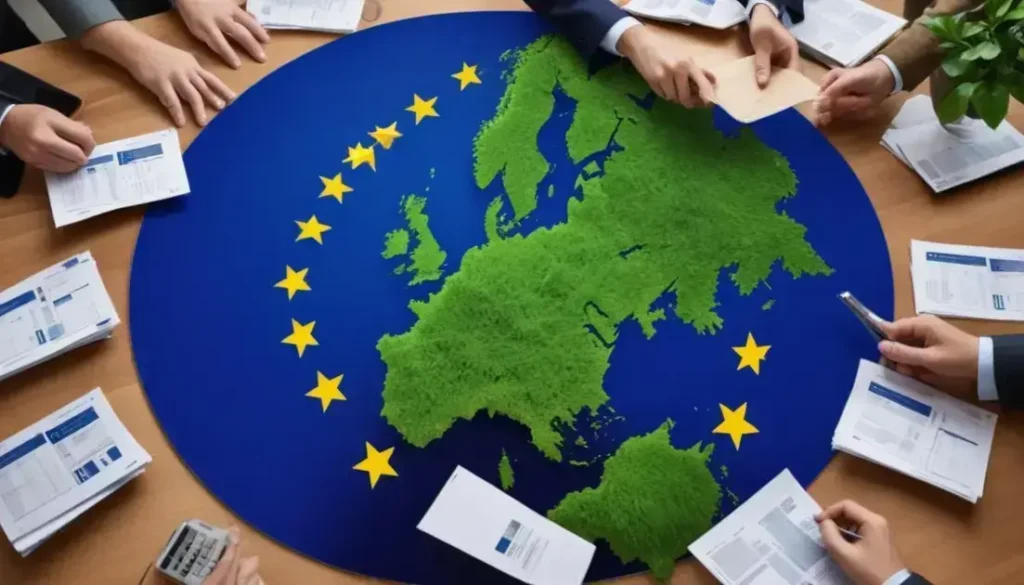Ocean conservation is critical for protecting marine biodiversity, regulating climate, and sustaining livelihoods; it requires active participation from individuals and communities to combat threats like pollution and overfishing, ensuring a healthier planet for future generations.
The celebration of **Oceans** through art continues to inspire change. This year’s World Oceans Day Photo Competition has unveiled stunning images that highlight pressing issues facing our oceans. Curious about the impact these winners have? Let’s dive in!
Highlighting the winners of World Oceans Day Photo Competition
Each year, the World Oceans Day Photo Competition showcases stunning imagery that highlights marine life and the challenges our oceans face. This year’s winners exemplify the beauty and fragility of our aquatic ecosystems, bringing critical awareness through their lens. The striking visuals capture everything from the majesty of coral reefs to the impact of pollution on marine habitats.
The competition invites photographers to submit images that tell powerful stories about the state of our oceans. Such artworks push us to reflect on our role in ocean conservation. The winning entries from this competition not only entertain but also educate, urging viewers to appreciate and protect marine environments.
Profound Messages: Each photograph serves as a reminder of the urgent need to address climate change and its effects on ocean health. These visuals convey strong messages about biodiversity loss and habitat destruction, making it vital for audiences to engage with these issues. The impressive skill and creativity displayed by the winners inspire both artists and activists alike.
As these captivating images circulate globally, they prompt action from individuals and organizations. Initiatives and campaigns can thrive, fueled by the awareness raised through these exceptional works. By supporting this competition, we invest in a more sustainable future for our oceans.
Understanding the themes of the winning photographs
The winning photographs from the World Oceans Day Photo Competition reflect a rich tapestry of themes that resonate deeply with the challenges faced by our oceans. Each image offers a unique perspective, highlighting critical issues such as marine pollution, climate change, and biodiversity loss. These themes are crucial for raising awareness and driving conservation efforts.
Marine Conservation is a recurring theme, showcasing vibrant marine life and fragile ecosystems. Photographers capture the beauty of coral reefs and the diversity of species inhabiting these waters, reminding us of what stands to be lost. Additionally, imagery that depicts the dire consequences of pollution emphasizes the urgency of addressing human impacts on our oceans.
Another theme involves the portrayal of indigenous communities and their connection to marine ecosystems. These photographs tell stories of harmony between humans and nature, highlighting sustainable practices that respect ocean resources. The powerful narratives conveyed through these images encourage viewers to re-evaluate their relationship with the ocean.
Through visual storytelling, these winning photographs compel us to act. They foster a sense of responsibility towards protecting marine environments, inspiring action not only among policymakers but also among individuals. By embracing these themes, we can contribute to a global movement toward ocean conservation.
Importance of ocean conservation and awareness
The importance of ocean conservation cannot be overstated. Oceans are vital for our planet, regulating climate, sustaining biodiversity, and supporting the livelihoods of billions around the world. However, human activities pose significant threats to these crucial ecosystems, from overfishing to plastic pollution.
Understanding the need for conservation is essential for raising awareness. Protecting marine environments fosters healthy ecosystems that, in turn, ensure the survival of countless species. Moreover, conserved oceans contribute to climate stabilization and help mitigate the effects of climate change. By prioritizing ocean conservation, we promote a sustainable future for both the planet and humanity.
Moreover, ocean conservation efforts have a direct impact on local communities, especially those reliant on marine resources for their livelihoods. Education and awareness campaigns can empower communities to adopt sustainable practices. Engaging the public in marine protection initiatives fosters a sense of responsibility, encouraging more people to advocate for policy changes that support ocean conservation.
Collaborative efforts between governments, NGOs, and local communities are critical for effective conservation strategies. By working together, they can create protected areas, implement sustainable fishing practices, and promote marine education. Ultimately, raising awareness about the significance of ocean conservation is a collective responsibility and necessary for ensuring a healthier planet.
In Summary: The Urgency of Ocean Conservation
Ocean conservation is critical for a healthy planet and sustainable future. By protecting marine ecosystems, we ensure biodiversity and support livelihoods. The challenges our oceans face, such as pollution and climate change, demand immediate action.
Everyone can play a role in promoting awareness and participating in conservation efforts. Whether through education or supporting responsible practices, collective action is essential. Protecting our oceans benefits not just marine life but humanity as a whole.
By valuing and safeguarding our oceans, we create a better world for future generations. Let’s commit to ocean conservation and make a difference together.
Frequently Asked Questions
Why is ocean conservation important?
Ocean conservation is vital for maintaining biodiversity, regulating climate, and supporting the livelihoods of millions. Healthy oceans help sustain the ecosystem that we all depend on.
What are the main threats to oceans today?
The primary threats include pollution, overfishing, habitat destruction, and climate change. These factors contribute to the decline of marine life and ecosystems.
How can individuals contribute to ocean conservation?
Individuals can help by reducing plastic use, participating in clean-up drives, supporting sustainable seafood practices, and advocating for policies that protect marine environments.
What role do communities play in ocean conservation?
Local communities are essential in conservation efforts. They can implement sustainable practices, educate others about marine protection, and collaborate on initiatives to safeguard local ecosystems.
What are some effective conservation strategies?
Effective strategies include establishing marine protected areas, promoting sustainable fishing, reducing pollution, and conducting awareness campaigns to educate the public about the importance of ocean health.
How does ocean conservation impact climate change?
Healthy oceans act as a significant carbon sink, helping to absorb carbon dioxide. Protecting marine environments is crucial for mitigating climate change effects on both marine and terrestrial ecosystems.


